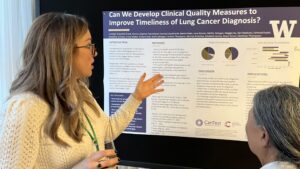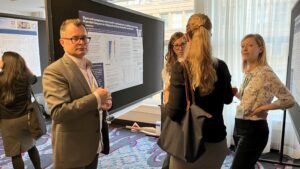International conference promotes collaboration to improve cancer diagnosis at the earliest possible stages
The Early Detection of Cancer Conference was held this month in Portland, Oregon, formed and hosted by the Knight Cancer Institute at Oregon Health & Science University, the Canary Center at Stanford, and Cancer Research UK.
The 3-day event attracted speakers and attendees from all over the world, and included engaging discussions, lightning talks and networking opportunities with experts with the main aim of improving and finding new ways of detecting lethal cancers as they are forming so they can be treated more effectively.
With the purpose of accelerating progress by breaking down barriers for scientists, the conference also looked to tackle topics such as the lack of sizable cohorts and a shortage of clinical samples available for research, the development and deployment of new technologies, and the lack of understanding of the biology of early cancer and technologies to detect its features.
Several CanTest faculty members and affiliated researchers attended the conference, with posters presented by Dr Lesleigh Kowalski Frank and Hannah Burkhardt of the University of Washington.
Now in the final stages of her PhD in biomedical and health informatics, Hannah Burkhardt was funded to attend the conference via a CanTest travelling fellowship – a scheme developed to encourage international collaboration and research/skills development. Hannah presented a poster for her latest project, entitled, ‘Signs and symptoms extracted from electronic health records using AI (artificial intelligence) to predict lung cancer diagnosis at least 6 months in advance’, and said of the conference,
“This project has been so rewarding for me, and having the privilege to travel and to meet my international collaborators in person was wonderful! The poster sessions were excellent – the organizers created a welcoming environment for attendees to share and discuss this interesting and important research. The amount of engagement from patient advocates was also very refreshing.”




